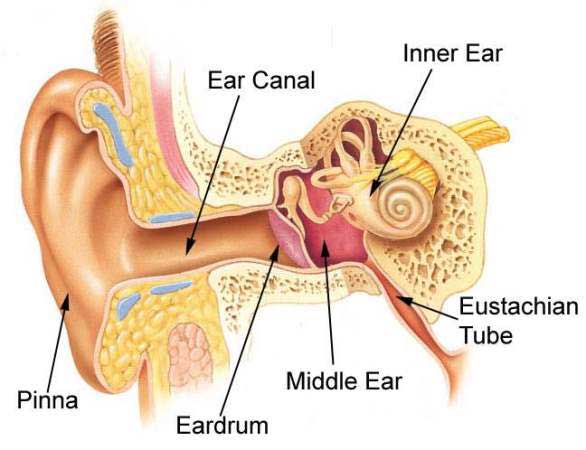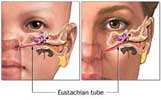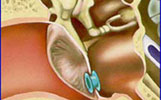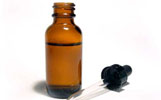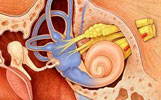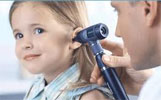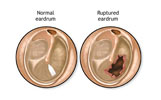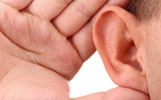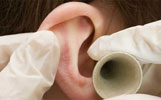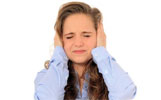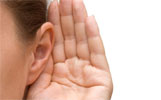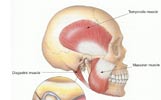Ear health problems
Adult Hearing Loss
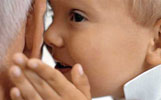 People of all ages experience gradual hearing loss, often due to the natural aging process or long exposure to loud noise. Other causes of hearing loss include viruses or bacteria, heart conditions or stroke, head injuries, tumours, and certain medications. The treatment for hearing loss will depend on your diagnosis.
People of all ages experience gradual hearing loss, often due to the natural aging process or long exposure to loud noise. Other causes of hearing loss include viruses or bacteria, heart conditions or stroke, head injuries, tumours, and certain medications. The treatment for hearing loss will depend on your diagnosis.
Children’s and Adult Hearing Testing
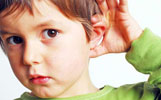 Some children develop temporary hearing loss due to trapped fluid (effusion or glue behind the drumhead). This may follow a cold or sometimes occurs for no obvious reason. If your child appears to have hearing loss for longer than a week, a hearing test should be organised and your child needs to go to the family Doctor or ENT Specialist.
Some children develop temporary hearing loss due to trapped fluid (effusion or glue behind the drumhead). This may follow a cold or sometimes occurs for no obvious reason. If your child appears to have hearing loss for longer than a week, a hearing test should be organised and your child needs to go to the family Doctor or ENT Specialist.
Ear Care
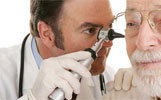 Reduce the risk of infections by treating upper respiratory infections promptly. Some illnesses and medical conditions can affect your hearing – if you experience sudden hearing loss or persistent noise or ringing in your head, contact your local doctor who will arrange for you to see your ENT Specialist.
Reduce the risk of infections by treating upper respiratory infections promptly. Some illnesses and medical conditions can affect your hearing – if you experience sudden hearing loss or persistent noise or ringing in your head, contact your local doctor who will arrange for you to see your ENT Specialist.
Ear Drum Perforation
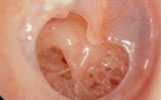 A hole or rupture in the drumhead is called a perforated drum. The medical term for the drumhead is tympanic membrane. The Eustachian tube, equalizes pressure and Eustachian tube dysfunction may be a factor leading to infection and perforation . A perforated drum is often accompanied by decreased hearing and occasional infection with discharge.
A hole or rupture in the drumhead is called a perforated drum. The medical term for the drumhead is tympanic membrane. The Eustachian tube, equalizes pressure and Eustachian tube dysfunction may be a factor leading to infection and perforation . A perforated drum is often accompanied by decreased hearing and occasional infection with discharge.
Ear Infection – Chronic Otitis Media and Glue Ear
 Chronic otitis media – glue or fluid behind the drumhead. The other name is “otitis media with effusion.” Fluid can remain for weeks to many months after otitis media. Otitis media and glue cause the drum to stop working properly causing hearing problems. Grommet placement is often needed for chronic otitis media and will allow proper ventilation and restoration of Eustachian tube function.
Chronic otitis media – glue or fluid behind the drumhead. The other name is “otitis media with effusion.” Fluid can remain for weeks to many months after otitis media. Otitis media and glue cause the drum to stop working properly causing hearing problems. Grommet placement is often needed for chronic otitis media and will allow proper ventilation and restoration of Eustachian tube function.
Epley Maneuver – Exercises for Vertigo
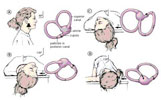 The Epley maneuver is also called the particle repositioning or canalith repositioning procedure – it was invented by Dr. John Epley. The Epley maneuver involves sequential movement of the head into four positions, staying in each position for around 30 seconds. The recurrence rate for BPPV after these maneuvers is about 30 percent at one year, and in some instances a second treatment may be necessary.
The Epley maneuver is also called the particle repositioning or canalith repositioning procedure – it was invented by Dr. John Epley. The Epley maneuver involves sequential movement of the head into four positions, staying in each position for around 30 seconds. The recurrence rate for BPPV after these maneuvers is about 30 percent at one year, and in some instances a second treatment may be necessary.
Facial Nerve Palsy
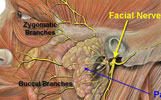 Facial palsy is a devastating condition for the patient and their family. Facial nerve palsy may occur spontaneously, may follow trauma or surgical procedures or may develop as a result of tumours. Paralysis that involves all divisions of the facial nerve is peripheral, while paralysis sparing the forehead is central.
Facial palsy is a devastating condition for the patient and their family. Facial nerve palsy may occur spontaneously, may follow trauma or surgical procedures or may develop as a result of tumours. Paralysis that involves all divisions of the facial nerve is peripheral, while paralysis sparing the forehead is central.
Low Sodium Diet
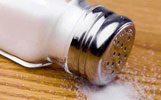 The level of salt in the body is carefully controlled by the kidneys. Eating too much salt forces the kidneys to work harder and can increase blood pressure. If you have high blood pressure, heart disease or your body is holding extra fluid, or you have an inner ear condition such as Meniere’s Disease, it is even more important to limit salt.
The level of salt in the body is carefully controlled by the kidneys. Eating too much salt forces the kidneys to work harder and can increase blood pressure. If you have high blood pressure, heart disease or your body is holding extra fluid, or you have an inner ear condition such as Meniere’s Disease, it is even more important to limit salt.
The Ears and Flying
 The air in the middle ear is constantly being absorbed by its membranous lining and re-supplied through the Eustachian tube. In this way, air pressure on both sides of the drum stays about equal. If, and when, the air pressure is not equal blockage may develop. Any situation in which rapid altitude or pressure changes occur creates the problem.
The air in the middle ear is constantly being absorbed by its membranous lining and re-supplied through the Eustachian tube. In this way, air pressure on both sides of the drum stays about equal. If, and when, the air pressure is not equal blockage may develop. Any situation in which rapid altitude or pressure changes occur creates the problem.
If you have any questions regarding ear problems contact your local doctor who will arrange for you to see an Ear Nose Throat Specialist.
